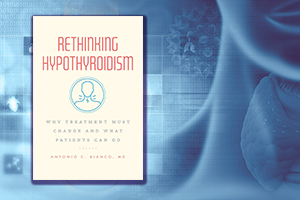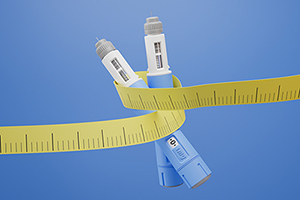



| By Dr. Ronald Hoffman
Is the increase in cases of ADD, ADHD, asthma and teenage depression related to the increase in the consumption of MSG? George Schwartz, M.D., believes that this is the case and offers a very convincing argument in the new revised edition of In Bad Taste: The MSG Symptom Complex. According to Dr. Schwartz, monosodium glutamate (MSG) is a drug added to our foods that causes widespread toxicity.
After a brief introduction and history of MSG—the most widely used flavor enhancer in the world—in chapters 1 and 2, Dr. Schwartz presents lengthy and diverse case histories of the MSG symptom complex in chapter 3. In chapters 4, 5 and 6, we can view a clear portrait of the many symptoms associated with this substance. Asthma, arthritis, atrial fibrillation and headaches are presented. The exacerbation of and connection to conditions such as Alzheimer’s disease, gastroesophageal reflux disease, mitral valve prolapse and epilepsy are fully discussed. A total of 65 symptoms and conditions are addressed and associated with MSG consumption.
How does one prepare nutritious meals in a reasonable amount of time and still avoid MSG? Dr. Schwartz addresses this question by presenting a lesson on MSG-free cooking in chapter 7 and provides some quick recipes in appendix 1. Seven shopping tips and a list of substitutions enable the reader to find a way to still enjoy their favorite foods but without the deleterious effects of MSG. Chapter 8 not only provides a list of foods most likely to contain MSG but also includes a list of common brand name items that contain it. Further, a brief explanation of food labeling, including the position of the FDA, addresses how this substance can be hidden in our food.
Do you frequent fast-food establishments? Are you wondering if MSG is included in the fast food you are consuming? The most logical answer would be that MSG is used in virtually all fast food. In chapter 9, Dr. Schwartz provides a list of popular fast-food chains and the most common items they serve that contain MSG. Tips on how to avoid the substance when eating on airplanes and trains and in cafeterias and restaurants round out the chapter.
Dr. Schwartz clearly explains why he believes MSG is a drug by comparing its actions with the definition that describes the functions of a drug. Eighteen pages of scientific references are included to support his argument against MSG. With millions of people currently consuming this substance in conjunction with the current rise in childhood disorders, neurodegenerative diseases and other conditions related to the MSG symptom complex, one can understand his passion and, hopefully, question what we put into our mouths for nourishment.
In Bad Taste: The MSG Symptom Complex is an important educational tool, clearly associating MSG with many common conditions present in our society. This book is desperately needed to address this wide complex of symptoms that would most likely not be associated with one known substance. Anyone interested in improving their health or making the connection between their own unexplained symptoms and their current diet habits owes it to themselves to read In Bad Taste: The MSG Symptom Complex.
Though we think of declining estrogen as the hallmark of menopause, it's actually common for…

Up to 12 percent of Americans have ulcers at some point in life. Peptic ulcers…
Gallbladder disease is a modern illness. An estimated 20 million Americans have gallbladder disease. The…

Dr. Antonio Bianco, recipient of the American Thyroid Association’s John B. Stanbury Thyroid Pathophysiology Medal,…

There’s a misconception among low-carb dieters. Many people believe a low-carb diet is much higher…

New, more powerful weight loss drugs: Drugs like Wegovy, Rybelsus, Ozempic and Mounjaro/Zepbound are revolutionizing…

Q&A with Leyla, Part 1: ‘Good’ Bacteria

Our virtual voicemail is open 24/7, so there's no need to wait to submit your questions for Dr. Hoffman. Leave a message, and you may hear your question featured on the Intelligent Medicine radio program!